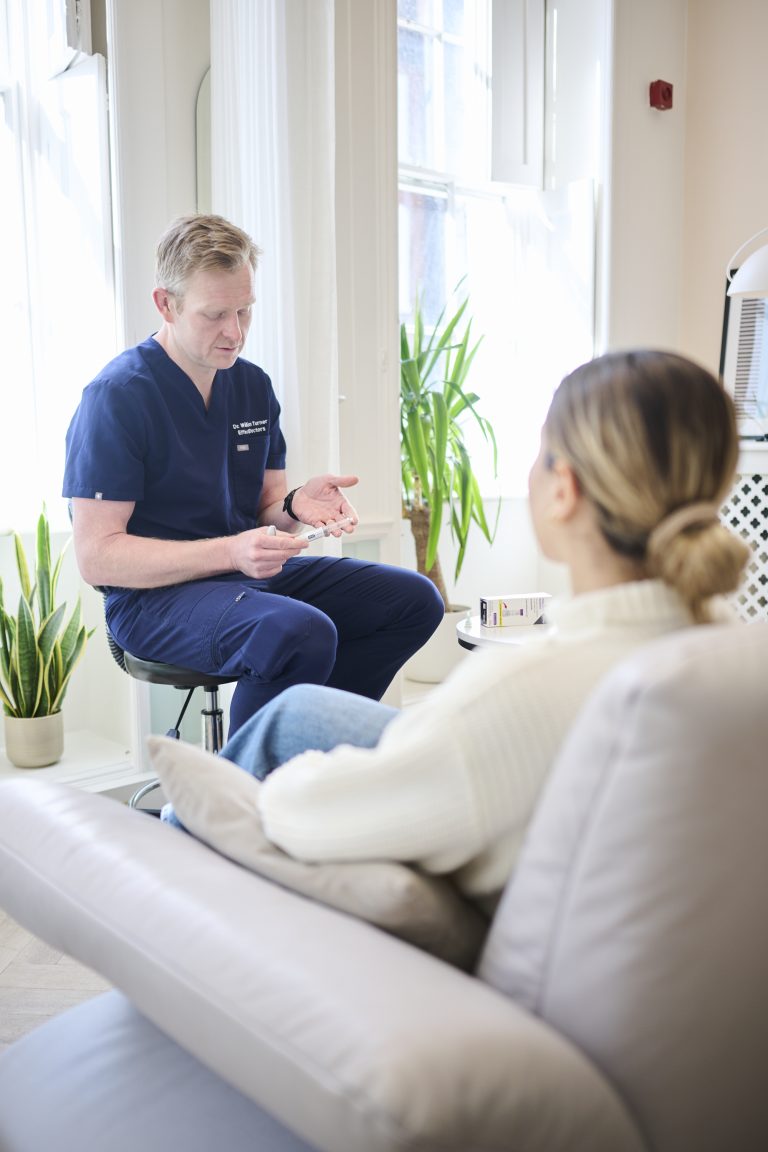Biotin is an essential vitamin, but what are it’s health benefits?
Our services mentioned in this article: Biotin IM Booster
If you like to keep up with all the latest health and beauty trends, you might have heard the odd thing or two about biotin and how you should be incorporating it into your skincare regime. But what is biotin, and what are its benefits?
Biotin is an essential vitamin that’s sometimes referred to as Vitamin H. A water-soluble B vitamin (vitamin B7) biotin is found naturally in various foods. It is an essential component of enzymes involved in metabolising fats and carbohydrates, influencing cell growth, and affecting amino acids involved in protein synthesis. For this reason, Vitamin H is used as a supplement for brittle nails and hair loss.
Biotin and other antioxidants can also help you detox and renew for better immunity and glowing skin.
We also need biotin for:
- Processing nutrients from our food
- Energy release
- Healthy hair, skin and mucous membranes
- Normal nervous system and mental health
- It helps regulate signals sent between the cells in our body
Biotin is a vital vitamin that we can get through a varied, balanced diet and healthy lifestyle, but it can be produced naturally in your bowel.
Your body only needs small amounts to support normal function, so most people get the biotin they need from eating a healthy diet. There is some evidence that getting more biotin can help regulate your blood sugar, promote healthy hair, skin, and nails, and help pregnant people have healthier babies.
How much biotin should we be getting daily?
It’s recommended that adolescents and adults should be getting between 30 and 100 micrograms (mcg) per day.
Because it’s water-soluble, extra biotin will pass through your body when you urinate. Biotin supplements can, in some cases, cause side effects like nausea and digestive issues, but there are no known toxicity symptoms associated with too much biotin.
Although biotin deficiency is rare, the following symptoms can indicate low levels of the vitamin:
- Thinning hair
- Red, scaly rash around eyes, nose and mouth
- Conjunctivitis
- Brittle nails
- Skin infections and rashes
- Dry skin and eyes
- Depression
If you’re experiencing these symptoms, always speak to your GP to rule out biotin deficiency as well as other health conditions.
Who is at higher risk of biotin deficiency?
The National Institute of Health states the following groups may be at higher risk of developing a biotin deficiency:
- Individuals living with alcoholism – long term daily consumption of alcohol reduces the absorption of biotin, leaving people vulnerable to low levels.
- Smokers – who often have low biotin levels.
- Pregnant and breastfeeding women – despite normal biotin consumption, pregnant and breastfeeding women tend to have lower biotin levels.
- Those living with chronic health conditions – chronic (long term) health conditions can often limit a person’s ability to absorb vitamins and minerals properly, meaning that they’re not always getting enough of what they need despite their diet.
What are the natural sources of biotin?
- Egg yolk
- Organ meats (liver, kidney)
- Nuts, like almonds, peanuts, pecans, and walnuts
- Nut and seeds
- Soybeans and other legumes
- Whole grains and cereals
- Cauliflower
- Bananas
- Mushrooms
- Spinach
It’s always advisable to be seen by a doctor who can determine the risk of deficiency and diagnosis and suggest treatment or course of action that’s best for you.
Sources:
https://lloydspharmacy.com/blogs/vitamins-and-supplement-advice/benefits-of-biotin
https://www.verywellhealth.com/biotin-for-hair-growth-89236
https://www.healthline.com/health/the-benefits-of-biotin
Recent effect insights
How Our IV Drips Help You Recover from Summer Festivals
Festival season is here. Whether you’re heading to Glastonbury, Reading, or any of London’s summer events, you’re proba...
Seven Myths about Weight Loss Drugs Mounjaro and Wegovy.
Mounjaro and Wegovy have transformed the way we approach weight loss—but these medications work best with the right support. In this ar...
Understanding Which Blood Test is Right for You
Blood tests offer a powerful window into your internal health—helping you detect issues early, understand your body better, and make in...


